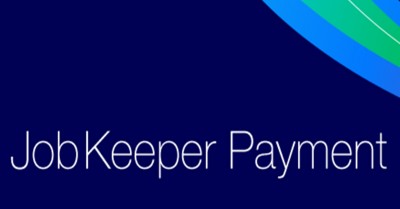For Educators who are currently receiving JobKeeper payments, the Children's Services Award 2010, still applies.
As an Educator, if your hours, days, or duties have changed due to Jobkeeper, you still should be on the same hourly rate as you would be on in the Children's Services Award. Also if you do less than $1500 worth of work in the fortnight, you’re entitled to be paid at least $1500. If you do more than $1500 worth of work, you need to be paid for all the hours you actually worked. This includes being paid any overtime, penalty rates, or allowances as it states in the Children's Services Award.
JobKeeper Payment: Earning less than $1500
Your employer can’t pay less than an amount equal to the JobKeeper payment, which is $1500 (before tax) per fortnight.
If you earn less than the JobKeeper payment during a fortnight for the work you perform (including any payments for leave or public holidays), your employer still needs to pay you $1500 (before tax) for that fortnight. The employer can’t keep the difference.
For example, if an employee earns $25 an hour and works 40 hours in a fortnight, their pay would normally be $1000 (before tax). Even though this is less than the JobKeeper payment, the employer must still pay the full $1500 (before tax) to the employee.
If your employer pays you less than the amount less than the JobKeeper payment, the ATO will stop reimbursing JobKeeper payments to your employer.
JobKeeper Payment: Earn more than $1500
If you earn more than the JobKeeper payment during a fortnight for the work you perform (including any payments for leave or public holidays), your employer needs to pay you the higher amount for that fortnight. Your employer can’t pay just $1500 (before tax).
For example, if an employee normally works 76 hours a fortnight and is paid $1700 (before tax), and this hasn’t changed while the employer is receiving JobKeeper, they still need to be paid $1700 (before tax) for the hours they work.
Changing an employee’s workdays and times under the JobKeeper scheme
The Fair Work Act JobKeeper provisions enables your employer to agree with you to perform your usual duties on different days or during different times. Your employer needs to make sure that:
- it is safe (including considering the nature and spread of coronavirus)
- it is reasonably within the scope of employer’s business operations
- the employee’s usual work hours aren't reduced overall (as this requires a JobKeeper enabling stand down direction).
If your employer asks you to make these changes, you to consider the request and can’t unreasonably refuse it. Any agreement has to be recorded in writing, such as in a letter or email.
Any agreements made under the new JobKeeper provisions end on 28 September 2020. Employees’ terms and conditions will revert back to what they were without the agreement in place.
References:
Pay & The JobKeeper Scheme, Fair Work Australia
Changing Duties, Location or Days & Times of Work Under The JobKeeper Scheme Fair Work, Australia



 As an Educator in Australia, your pay rate falls under the Children’s Services Award 2010. This award states the minimum amount that an employer can
As an Educator in Australia, your pay rate falls under the Children’s Services Award 2010. This award states the minimum amount that an employer can When working as a qualified Early Childhood Teacher (with a university degree) within a service, your rate of pay will come from the Educational Services
When working as a qualified Early Childhood Teacher (with a university degree) within a service, your rate of pay will come from the Educational Services When working as a Diploma Qualified Educator your pay rate is from the Children's Services Award 2010. This Award states your minimum rate of pay
When working as a Diploma Qualified Educator your pay rate is from the Children's Services Award 2010. This Award states your minimum rate of pay When working as a Cert 3 Qualified Educator, your pay rate is from the Children's Services Award 2010. This Award states your minimum rate of
When working as a Cert 3 Qualified Educator, your pay rate is from the Children's Services Award 2010. This Award states your minimum rate of Educational Leaders play a crucial role in their early childhood service by ensuring that the educational program aligns with best practices and supports the holistic
Educational Leaders play a crucial role in their early childhood service by ensuring that the educational program aligns with best practices and supports the holistic In early childhood education and care, ratios are more than a technicality—they are a frontline safeguard. Every child deserves responsive supervision, emotional connection, and developmental
In early childhood education and care, ratios are more than a technicality—they are a frontline safeguard. Every child deserves responsive supervision, emotional connection, and developmental With the new national child safety reforms kicking in on 1 September 2025, early childhood services like yours have a real opportunity to lead the
With the new national child safety reforms kicking in on 1 September 2025, early childhood services like yours have a real opportunity to lead the Here’s a comprehensive Mobile Phone and Smart Watch Policy tailored for early childhood education and care (ECEC) services in Australia, aligned with the latest 2025
Here’s a comprehensive Mobile Phone and Smart Watch Policy tailored for early childhood education and care (ECEC) services in Australia, aligned with the latest 2025 The Sea of Fish Challenge is a national initiative that invites children, educators, families, and communities to create and display fish artworks as a symbol
The Sea of Fish Challenge is a national initiative that invites children, educators, families, and communities to create and display fish artworks as a symbol Across the early childhood education and care sector, educators are sounding the alarm: current staffing ratios are insufficient to deliver safe, meaningful, and developmentally appropriate
Across the early childhood education and care sector, educators are sounding the alarm: current staffing ratios are insufficient to deliver safe, meaningful, and developmentally appropriate


